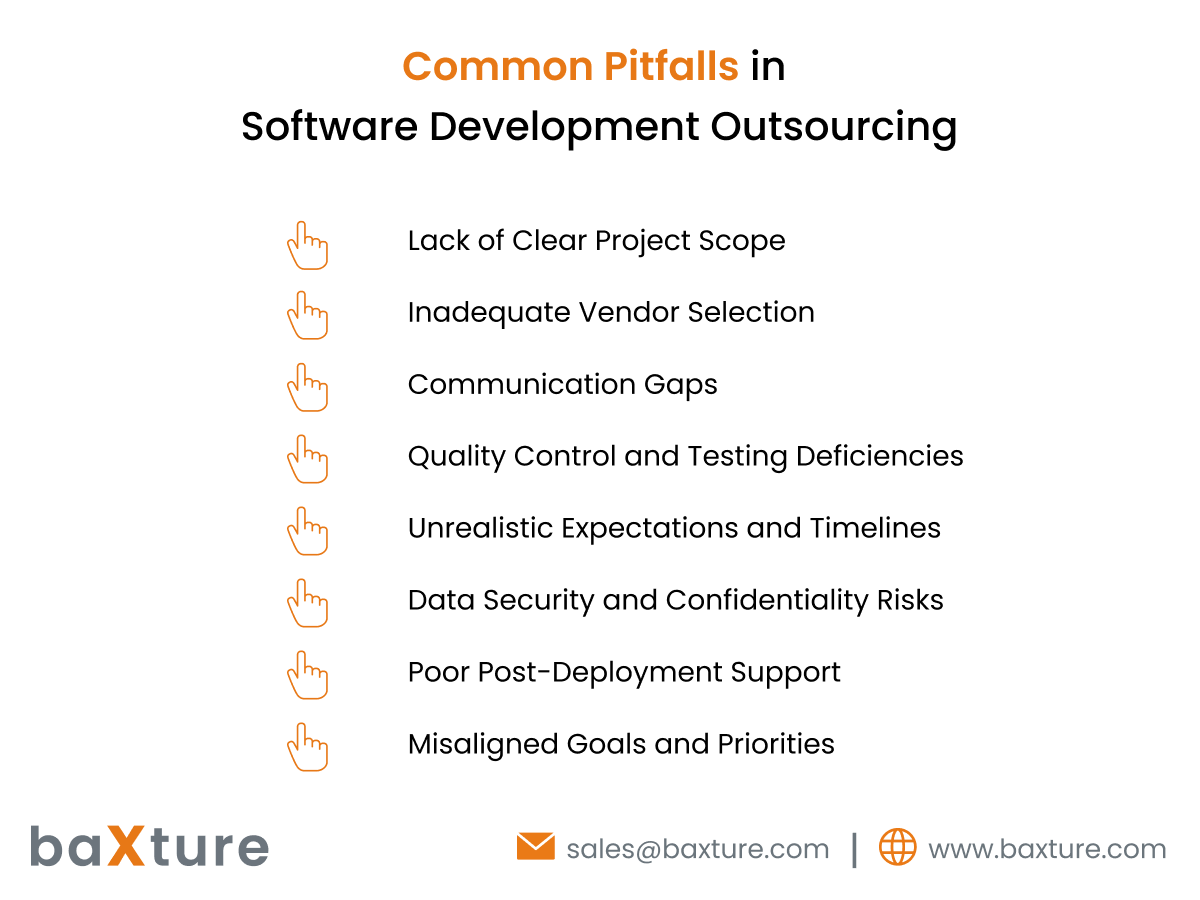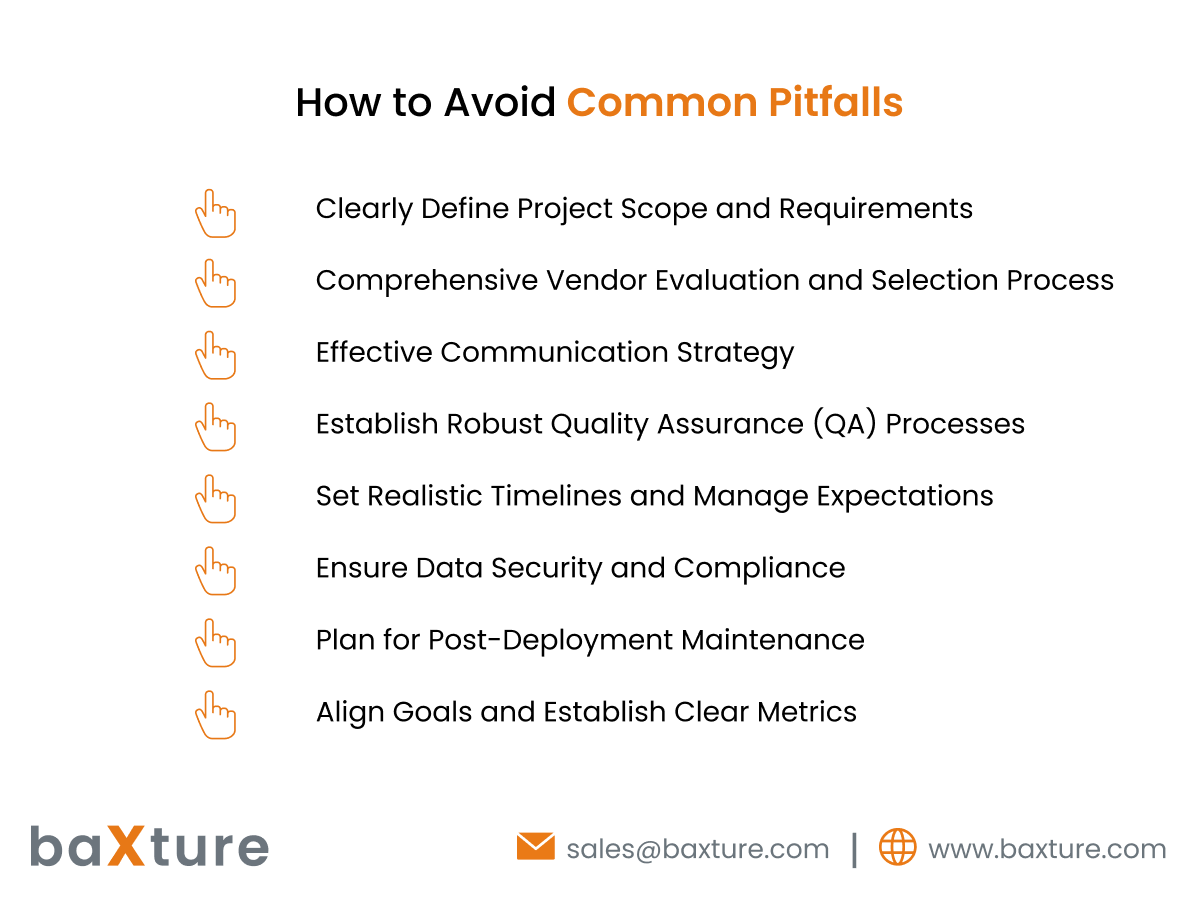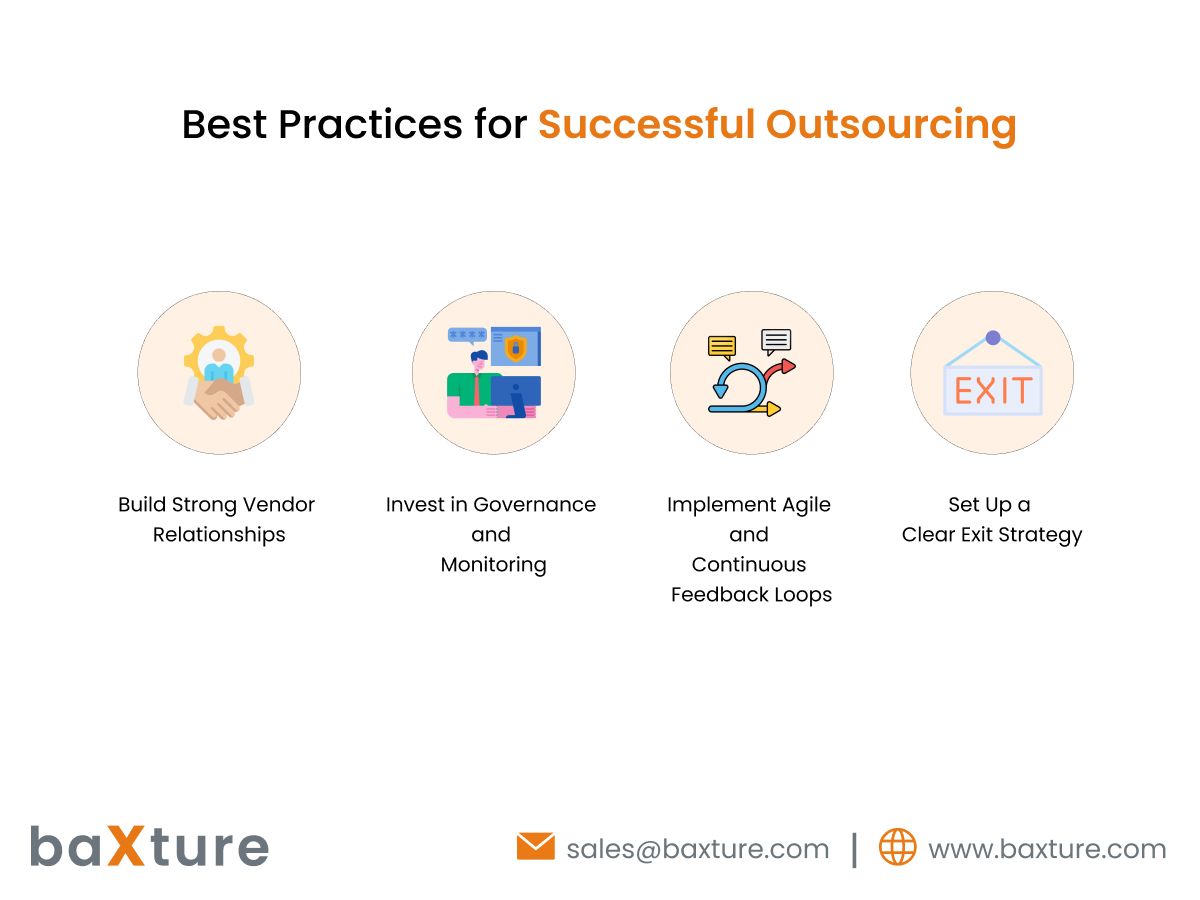Blogs
Common Pitfalls in Software Development Outsourcing and How to Avoid Them

In today’s hyper-competitive business environment, software development outsourcing has become a strategic move for organizations looking to innovate and scale quickly. By partnering with external development teams, companies can access specialized talent, reduce operational costs, and expedite time-to-market.
Outsourcing has been particularly appealing for startups and enterprises aiming to focus on core business processes while delegating technical tasks to experts. According to recent statistics, the global outsourcing market was valued at over $92.5 billion in 2023, and this number is expected to grow as more businesses embrace remote development teams and cloud-based operations.
However, despite its advantages, outsourcing also comes with inherent risks. A lack of planning, communication issues, and poor vendor selection can derail projects and lead to costly failures. In this article, we will explore the most common pitfalls in software development outsourcing and offer strategies to avoid them.
Common Pitfalls in Software Development Outsourcing

Lack of Clear Project Scope
One of the most frequent issues companies face when outsourcing is a poorly defined project scope. Without clear and precise requirements, the development team may struggle to deliver what the client truly wants. This can lead to scope creep, delays, and budget overruns. Changing requirements during development can also cause friction and confusion, impacting overall project success.
Inadequate Vendor Selection
Choosing the wrong outsourcing partner can have disastrous consequences. Many companies fall into the trap of selecting vendors based solely on cost, without thoroughly evaluating their technical capabilities, past performance, or industry reputation. Inadequate due diligence on the vendor’s experience with similar projects, their understanding of the client’s domain, or their ability to scale can lead to subpar results.
Communication Gaps
Communication breakdowns are a significant challenge in outsourcing, especially when working with teams in different time zones or with different cultural norms. Language barriers and inconsistent updates can create misunderstandings, leading to delays and a misalignment of expectations. If these gaps are not addressed early, they can compound over time and severely impact project delivery.
Quality Control and Testing Deficiencies
Outsourcing teams might not always adhere to the same quality control and testing standards as in-house teams. Without rigorous QA processes, software defects can go unnoticed, leading to post-launch failures or increased maintenance costs. A lack of structured testing can also cause functional misalignments, increasing the risk of product failure.
Unrealistic Expectations and Timelines
Both clients and vendors can suffer from unrealistic expectations. Clients may underestimate the complexity of a project or have overly optimistic timelines, while vendors may overpromise to secure the contract. This disconnect leads to frustration, unmet deadlines, and compromised product quality.
Data Security and Confidentiality Risks
When outsourcing software development, companies are often required to share sensitive data, which increases the risk of security breaches. Insufficient security protocols or unclear confidentiality agreements can result in data leaks, intellectual property theft, or even regulatory non-compliance (e.g., GDPR violations).
Poor Post-Deployment Support
Many companies overlook the importance of post-deployment support and maintenance, which can lead to critical operational issues after a project goes live. Without structured support agreements, clients may find themselves facing unexpected downtime or an inability to fix bugs promptly.
Misaligned Goals and Priorities
Finally, a lack of alignment between the client and the outsourcing team can cause significant problems. Vendors and clients may have differing views on project priorities, success metrics, or long-term goals, leading to a disconnect that can affect project outcomes.
How to Avoid Common Pitfalls

Clearly Define Project Scope and Requirements
To avoid scope creep and confusion, businesses must invest time upfront in creating a detailed project plan. This should include clear specifications, goals, deliverables, and timelines. An agile approach can be beneficial to accommodate evolving requirements without disrupting the entire project.
Comprehensive Vendor Evaluation and Selection Process
Vendor selection should go beyond just looking at costs. Organizations should evaluate potential partners based on their experience, technical skills, and track record. Client testimonials, case studies, and references are invaluable in assessing whether a vendor can handle the project’s scope and complexity.
Effective Communication Strategy
Establishing a structured communication plan can help mitigate gaps. Regular status updates, virtual meetings, and collaborative project management tools like Jira, Trello, or Asana can improve visibility and foster transparency between the client and the vendor.
Establish Robust Quality Assurance (QA) Processes
To ensure a high-quality product, implement automated testing, continuous integration, and quality checks throughout the development lifecycle. Defining clear acceptance criteria and performing regular code reviews are essential in maintaining high standards.
Set Realistic Timelines and Manage Expectations
Both clients and vendors need to set practical, achievable timelines based on the project’s complexity. Building in buffers for unforeseen issues and maintaining open communication can help manage expectations and keep the project on track.
Ensure Data Security and Compliance
Security should be a top priority. Establish robust security protocols, including encryption, multi-factor authentication, and secure code practices. Make sure that all legal frameworks are adhered to, including signing Non-Disclosure Agreements (NDAs) and ensuring GDPR compliance where necessary.
Plan for Post-Deployment Maintenance
Post-launch support is critical for long-term project success. Companies should negotiate Service Level Agreements (SLAs) that cover ongoing maintenance, bug fixing, and updates. Without clear post-deployment plans, businesses may face costly downtime and issues after the project goes live.
Align Goals and Establish Clear Metrics
It’s crucial to ensure that both the client and the outsourcing team share the same vision and goals. Defining key performance indicators (KPIs) and success metrics upfront can help in measuring progress and keeping both parties aligned throughout the project lifecycle.
Best Practices for Successful Outsourcing

Build Strong Vendor Relationships
Treat vendors as strategic partners, not just service providers. Building trust and a collaborative working relationship will increase the likelihood of success.
Invest in Governance and Monitoring
Set up a dedicated governance team to oversee the outsourced project. This team should monitor progress, ensure compliance with agreed timelines, and address any issues promptly.
Implement Agile and Continuous Feedback Loops
Using an agile methodology allows for greater flexibility in adjusting to changing needs. Continuous feedback loops can help both the vendor and client adapt to evolving requirements.
Set Up a Clear Exit Strategy
Every outsourcing contract should include a clear exit strategy. Define conditions under which the contract can be terminated without incurring significant legal or financial penalties, ensuring a smooth transition if needed.
Conclusion
Outsourcing can be a powerful tool for innovation and growth, but only if done right. By carefully defining project requirements, selecting the right vendors, and maintaining effective communication, businesses can avoid the common pitfalls that plague outsourcing efforts. Planning, vigilance, and clear expectations are key to ensuring a successful outsourcing partnership.
At Baxture, we specialize in delivering secure, high-quality software development outsourcing services. Our experienced teams, rigorous processes, and client-centric approach ensure successful project outcomes every time.
Looking to outsource your next project? Contact us today to schedule a consultation and discover how Baxture can help you achieve your software development goals.